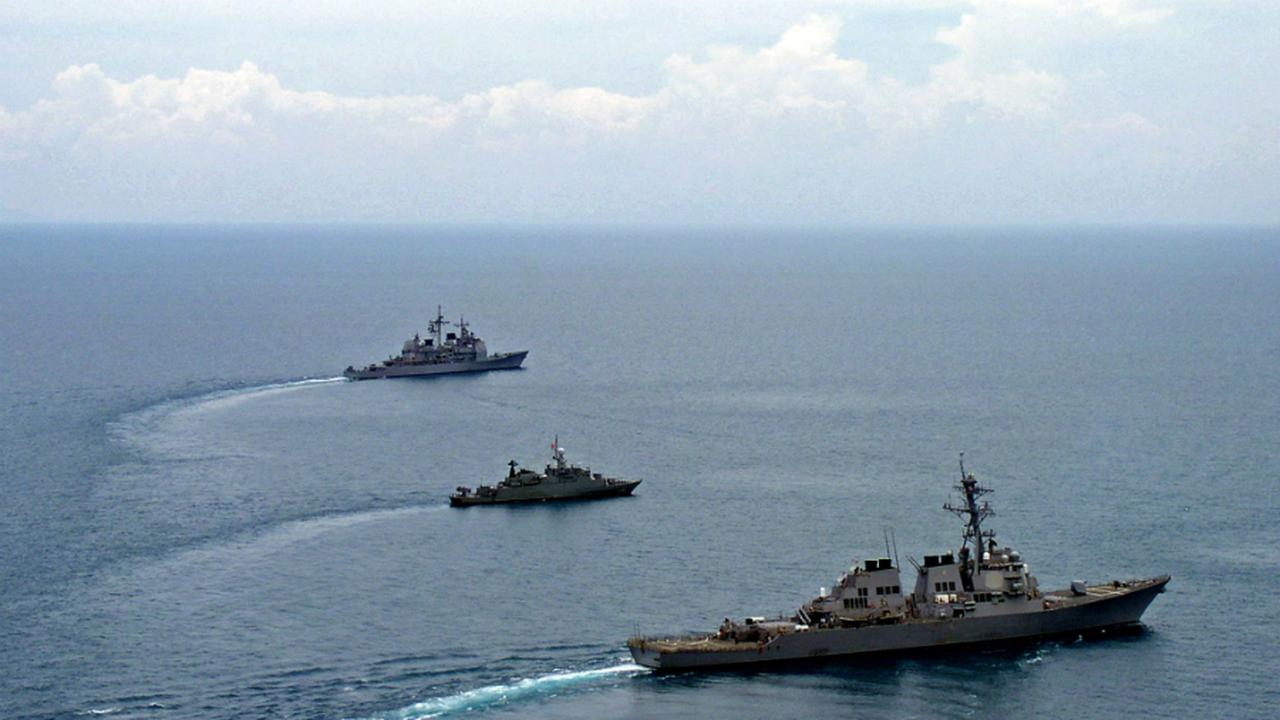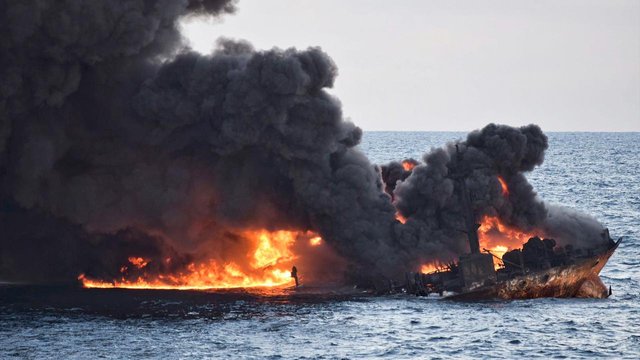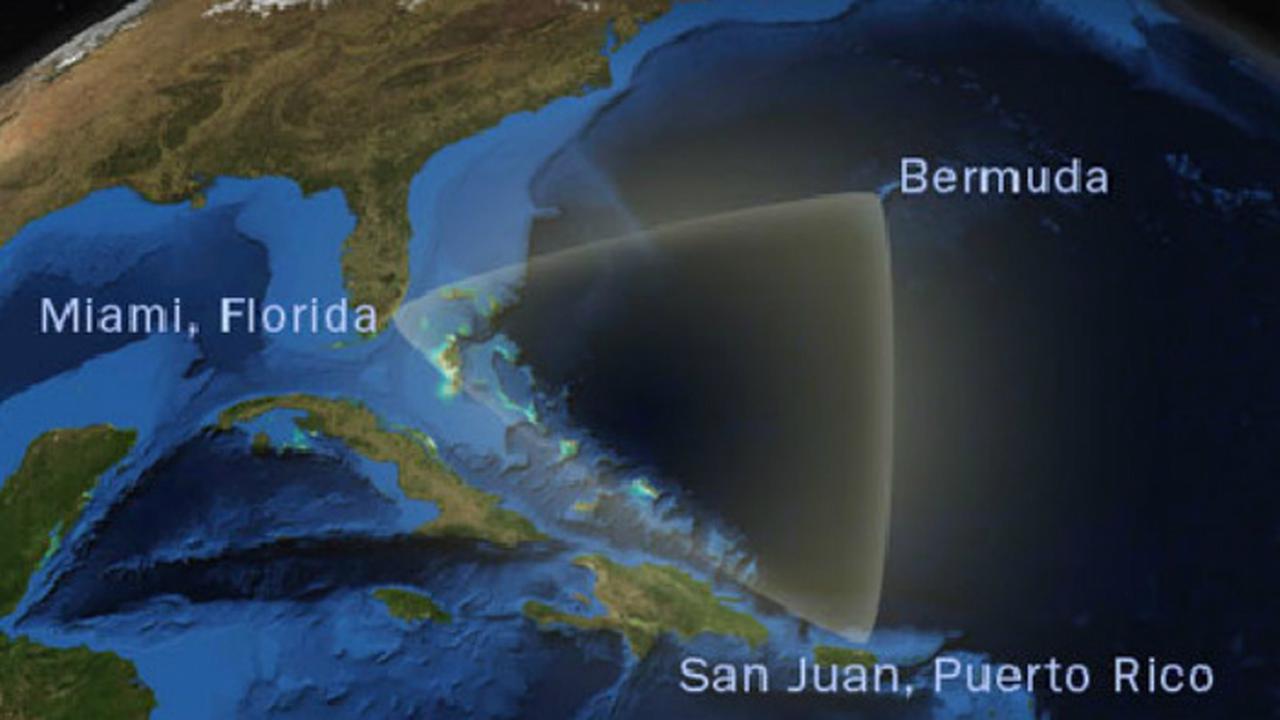Expert: New Bermuda Triangle Appears Close to Indonesia

A maritime expert for the German risk management consulting firm and former tanker captain for 14 years affirms the existence of a new Bermuda triangle in the Indo Pacific region - close to Indonesia, which has recently become a byword in the cruise world.
Rahul Khanna who serves as Global Head of Marine Risk Consulting Allianz explained that the mention of new bermuda triangle in the maritime Indo Pacific region is commonly associated as the location of a number of maritime accidents that occurred during 2017 until early 2018.
Khanna describes the new bermuda triangle residing in a maritime area connected at three points linked by an imaginary line. The three points are located in the Andaman Sea in the Indian Ocean, the Maluku Sea, to the North Sea of Japan.
"It has been widely mentioned that the vast area is often referred to as the new bermuda triangle," Khanna said as quoted from the progressive multimedia portal of the United States Big Think (6/2/2018).
"Perhaps the mention is too exaggerated, but it is clear that the maritime area is one of the locations where shipping incidents are frequent, not only busy, but also vulnerable to bad weather, and, in my view, the region often does not apply safeguard standards in accordance with international regulations, "he added.
Accidents that hit many ships in the area, including collisions, gastric leaks or ship's cargo contents, fires, explosions, and drowning.
The last time, a Panamanian-owned Sanchi oil tanker from Panama suffered a fire, exploded and sank in the South China Sea after crashing into a Hong Kong-branded CV Crystal tanker in early January 2018.
The incident not only killed all Sanchi crew members, but also resulted in an environmental disaster, where the oil that the ship was carrying spilled into the sea in the area of the new bermuda triangle.
Includes 40 Percent of Total Global Shipping Losses

Meanwhile, as quoted from Big Think, the new bermuda triangle region stretching from Indo China, Indonesia, the Malay Peninsula, the Korean Peninsula and Japan has become the front-runner in maritime accidents in the world.
In 2016 alone, 34 vessels crashed in the region - accounting for about 40 percent of the total 85 global shipping losses, according to marine insurance company Allianz.
Meanwhile, the MarineLink report mentions that the new bermuda triangle area has an average of 39 total ship losses per year, about one third of the total worldwide.
Even the United States Navy also has problems in the region, involving USS Lake Champlain, USS Fitzgerald, USS Antietam and USS John McCain.
Seventeen sailors lost their lives in a disaster involving the destroyers Fitzgerald and John S. McCain, the Navy Times said.
Although there is nothing mysterious about the incident on a case-by-case basis, the number of accidents that caused many people to compare the region with the Bermuda Triangle in Central America.
On the other hand, Volker Dierks, who heads Allianz's firm for Central and Eastern Europe, considers all the incidents triggered by the fact that "the vessel is getting bigger," which increases the risk of a collision.
This Scientist Ends Mystery of the Bermuda Triangle?

An Australian scientist, Karl Kruszelnicki, denied some speculation that circulated about the Bermuda Triangle. Aloud, he says that the mystery there has been solved.
Karl insisted that the reason behind the disappearance of ships and planes in the Bermuda Triangle was completely unrelated to aliens, fire crystals of lost Atlantis, or other supernatural things.
He said the loss of planes and ships in imaginary areas connecting the three points, Florida, Puerto Rico and the Bermuda island, were caused by human error and bad weather.
According to him, the imaginary region that covers 700,000 square kilometers in the Atlantic Ocean is an area with high traffic. "It is close to the Equator, close to the rich part of Earth - America - of course the traffic will be high," Karl said.
Quoted from the Independent on July 27, 2017, he said if the number of planes and ships were lost compared to those who escaped every day, then that number is nothing strange.
"According to Lloyd's of London and the US Coastguard, the amount lost in the Bermuda Triangle is equal to the number anywhere in the world on a percentage basis," says Karl.
He also explained, there is a simple explanation that triggered the beginning of the speculation of the Bermuda Triangle, namely the loss of 'Flight 19'.
Flight 19 was a flight of five US military bombers departing from Fort Lauderdale, Florida, for a routine two-hour training mission over the Atlantic on December 5, 1945.
After losing radio contact with their base, the five planes disappeared. There was no trace of the five aircraft, nor with their 14 crew.
Another US Navy aircraft with 13 crew intended to seek Flight 19, also disappeared.
Speculation of the Bermuda Triangle grew in 1964 when a journalist, Vincent Gaddis, dubbed the sea to the southeast of the US Atlantic coast under the name of 'the Bermuda Triangle'. Gaddis named it for an article on the loss of US Navy aircraft Flight 19.
"This relatively limited area is where the disappearance of planes far beyond the coincidence law, the mystery of which comes from the mysterious light, which Columbus observed when first approaching its landing in the Bahamas," Gaddis wrote.